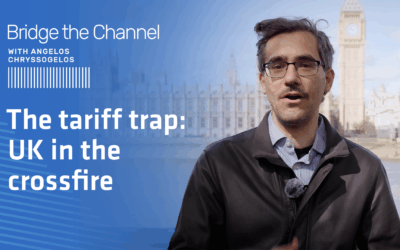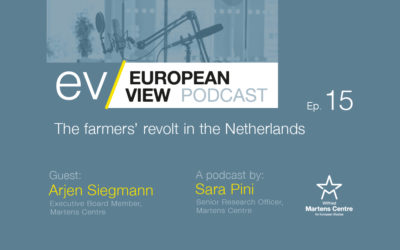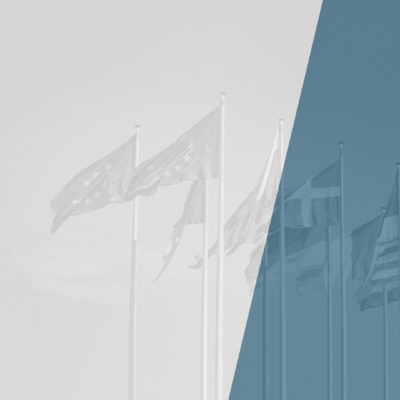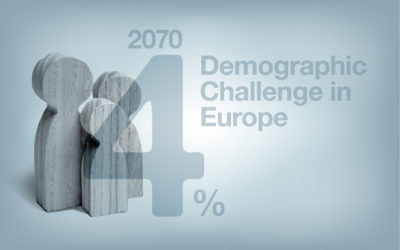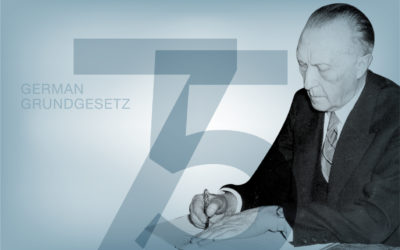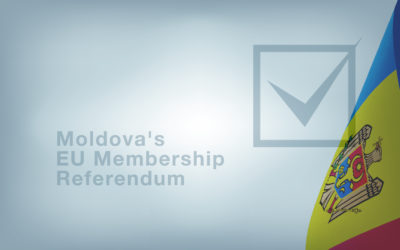Vital Questions on the Largest Enlargement in the EU
01 May 2024

1. You led your country to join the European Union 20 years ago, known as the Big Bang enlargement. What are the most important benefits of membership for your country? In which areas does your country still lag behind the older Member States?
Mikuláš Dzurinda, former Prime Minister of Slovakia: The past two decades have seen a remarkable transformation in Slovakia. The standard of living for most citizens has demonstrably improved. We introduced the Euro currency, a symbol of European unity and economic stability. Young Slovaks are now active participants in the Erasmus programme, experiencing the joys of studying and traveling freely across Europe. Our towns and cities have undergone a beautification process, with many projects funded by European solidarity initiatives. These projects have not only enhanced the environment but have also spurred tourism development and the creation of modern industrial parks.
The recent pandemic, a major global crisis, served as a powerful reminder of the strength found in unity. As member of the EU, we were not alone in coping this challenge. While we have our own domestic issues to address, as every nation does, we have the confidence and capability to find solutions. Furthermore, I believe Slovakia can make a more significant contribution to tackling the problems that Europe faces.
Politically, Slovakia has achieved full emancipation since joining the European Union. This is precisely what I envisioned twenty years ago. Today, I am filled with satisfaction and pride knowing that we are an integral part of a reunified Europe.
Lawrence Gonzi, former Prime Minister of Malta: Membership in the European Union reaffirmed Malta’s European identity and confirmed our determination to embrace European values as our way of life, especially respect for the fundamental freedoms of every person, the rule of law and the promotion of peace and stability. EU membership gave us the right to access the internal market on a level playing field. This important achievement triggered a substantial increase in economic activity across our society. Membership has also meant that the right to travel across the EU without restrictions as well as the right to benefit from education, work, and investment opportunities. The 2008 Financial Crisis, the 2011 Arab Spring and the 2020 Covid pandemic have seen Malta benefitting from the support provided by the Union to all its member states in times of economic stress. Malta joined the eurozone and adopted the single currency on 1 January 2008. This development meant that Malta faced the 2008 financial crisis with a stronger and more stable financial infrastructure which eventually allowed the island to prove its resilience and exit the crisis relatively unscathed. As a densely populated island state, Malta seeks to enhance its competitiveness by other means including tax and investment incentives. Malta shoulders its responsibility as a frontline member state facing irregular migration flows. However, older Member states need to understand the enormous burden imposed on the island when migration flows reach crisis levels. They also need to understand that access to the internal market remains one of the most important benefits of our membership and any proposal that diminishes this access directly or indirectly will always be a matter of major concern for us.
Juhan Parts, former Prime Minister of Estonia: TheBig Bang enlargement was certainly a great success for Europe and for Estonia. There could be many different views of what the EU is about: Is it an ideal for all civilizations to follow? Or is it an anchor of geopolitical stability based on values? Or a historical lesson of importance of the cooperation of nations based on deep mutual respect? Or just a kind donor? From the Estonian perspective, it has been about re-joining Western civilization, of which we were a part for centuries until our membership was disrupted for about 50 years. This created stability for human development and set up enormous opportunities to cooperate with different nations, to learn from each other, to feel a sense of belonging and to be united in order to address new and constantly emerging challenges.
2. The European Union has grown considerably, gaining both economic strength and geographic reach. However, this expansion has also led to increased difficulty in finding common ground due to the growing diversity among member states. Considering this, how can the EU be restructured to strike a better balance between efficiency in decision-making and respect for the unique national interests of its member states?
Mikuláš Dzurinda: The EU’s top priority in the near term should be to strengthen its security and defence capabilities, to build up a sufficient defensive military deterrent in the shortest possible time. An internal reform of the EU towards more flexible, effective decision-making would greatly help this. It does not matter how we call such a process, federalisation or otherwise. What is essential is that we consistently respect and apply the principle of subsidiarity in the further building of the EU. This principle speaks quite clearly in favour of a common European defence, but also in favour of the Member States on cultural and ethical issues. If the EU institutions were to start pushing for European ‘harmonisation’ in areas such as the ‘right’ to abortion, euthanasia, gay marriage, the adoption of children by gay couples and similar issues, this would lead to a significant weakening of the EU and strong centrifugal tendencies. The EU is culturally very diverse, and therefore, according to the European Treaties, the above-mentioned areas fall within the sovereign competence of the Member States. That is where they must remain.
Lawrence Gonzi: The answer to this question needs to be rooted in the conclusions of the Conference on the Future of Europe which included the following statement: “[…] the EU must act to achieve the green and digital transitions, strengthen Europe’s resilience and its social contract, while addressing inequalities and ensuring that the European Union is a fair, sustainable, innovative, and competitive economy that leaves no one behind. Our citizens expect a Union that delivers on these fundamental needs, but there is another important ongoing lesson: recent geopolitical developments challenge the status quo in a dramatic manner. The Russian war of aggression against Ukraine, the crisis in Gaza, the evident weakening of the rules-based international order, together with a growing social divide within our societies, continue to emphasise the urgent need for the EU to increase its assertiveness in the global arena. I trust that some of these challenges will be addressed by the reports that have been presented by Mario Draghi in his report on the future of European competitiveness in parallel with Enrico Letta’s report on the future of the single market – a market that must remain open to all member states, including and especially the ones at the periphery of the Union. It is within the framework of these reports that the EU must chart its way forward for effective and long-term reform that delivers on what is needed by a Union that must remain a Union for peace and stability in today’s world.
Juhan Parts: We certainly need to avoid contradictions between efficient decision making at the EU level and respecting national interests. The successful operation of the EU in the future also requires a constant search for a balance between the needs of citizens, the national interests of the member states, and the common values of the EU, the core of which is the protection of the fundamental rights and freedoms of every person and ensuring the wellbeing of all Europeans. It is time for Europe to cease self-admiration and draw serious conclusions from the crisis of confidence, of which Brexit was an expression and from which all our own populists and external adversaries draw their hopes to weaken European cooperation. Europe can only be built with concrete actions based on real solidarity. When Europe invades the lives of citizens more aggressively, the goals are vague, the democratic sense of responsibility is weak and explanatory work is incomplete. This turns feelings of certainty into ones of uncertainty, and enthusiasm turns into boredom.
3. In light of the multitude of pressing issues facing the EU, including the war in Ukraine, economic uncertainty, societal divides, and environmental challenges, how will these current difficulties influence the EU’s approach and capacity for the next significant enlargement?
Mikuláš Dzurinda: Indeed, for the last decade the EU has experienced unprecedented challenges, which have naturally impacted the position of Europeans towards the enlargement process. The EU’s internal divisions on enlargement may persist. Some Member States may fear taking on additional burdens, while others see it as crucial for the future of the EU.
In any case, EU membership fosters democratic values, economic growth, and regional stability. This can have a positive ripple effect throughout neighbouring countries. Bringing Ukraine and other Eastern European and Western Balkans countries into the fold strengthens the EU’s position against Russia. A larger EU presents a more unified front and offers greater economic and political clout.
Overall, the EU’s approach to enlargement is likely to be more cautious and geopolitically driven. The capacity for large-scale enlargement will depend on the EU’s ability to address its internal problems and develop a more effective accession process. The EU faces a delicate balancing act. While enlargement offers long-term benefits, the process needs careful management. The EU must address internal concerns, reform its institutions, and ensure new members are prepared for full integration. The war in Ukraine has made the stakes even higher, requiring a strategic and unified approach from the EU.
Lawrence Gonzi: There is no doubt that the current list of challenges and difficulties will influence the thinking of European Union member states as well as all the EU institutions when deciding on the best approach towards enlargement. What was taken for granted until a few years ago has now been challenged by Russia’s aggression on Ukraine, the crisis in the Middle East, and the EU’s relations with strategic competitors including the United States of America, China, and India. It is therefore safe to assume that these geopolitical considerations will impact decisions taken both with respect to enlargement as well as with regards to the integration process. In practice, this means that security, defence, and alignment in foreign policy will dominate any consideration that is mooted in the EU with regards to every step of the enlargement process. I am also assuming that these same considerations will inevitably reshuffle existing priorities when allocating financial resources to different sectors, such as defence and strategic resource alignment between member states. This does not in any way diminish the urgent need to tackle important reforms that have been highlighted in the past. These include addressing the challenges relating to the EU budgetary formulation and the manner, method and parameters within which EU decisions are taken.
Juhan Parts: The accession process was always held up by additional doubts as to whether applicant states were ready to join, and wider concerns within the EU about its capacity to absorb new member states. The EU should see the opportunities of the next significant enlargement, not the difficulties. First, Russia’s war of aggression against Ukraine and other geopolitical challenges have given new geostrategic meaning to enlargement. Successful and not lengthy enlargement would be a huge geostrategic investment in the future of the entire continent. Second, the EU should certainly do his homework. There is a lot of discussion about the need for institutional reforms. I would emphasise the need to revise many of the policies which have poor results; are overly centralised or overly bureaucratic. The EU should avoid the pattern of “over-promising and under-delivering”, while absolutely keeping a focus on strengthening EU competitiveness. Third, a re-energised enlargement process could act as leverage to overcome many of the difficulties faced by applicant countries to properly implement the necessary reforms on the fundamentals of the rule of law, including the judiciary and the fight against corruption.



